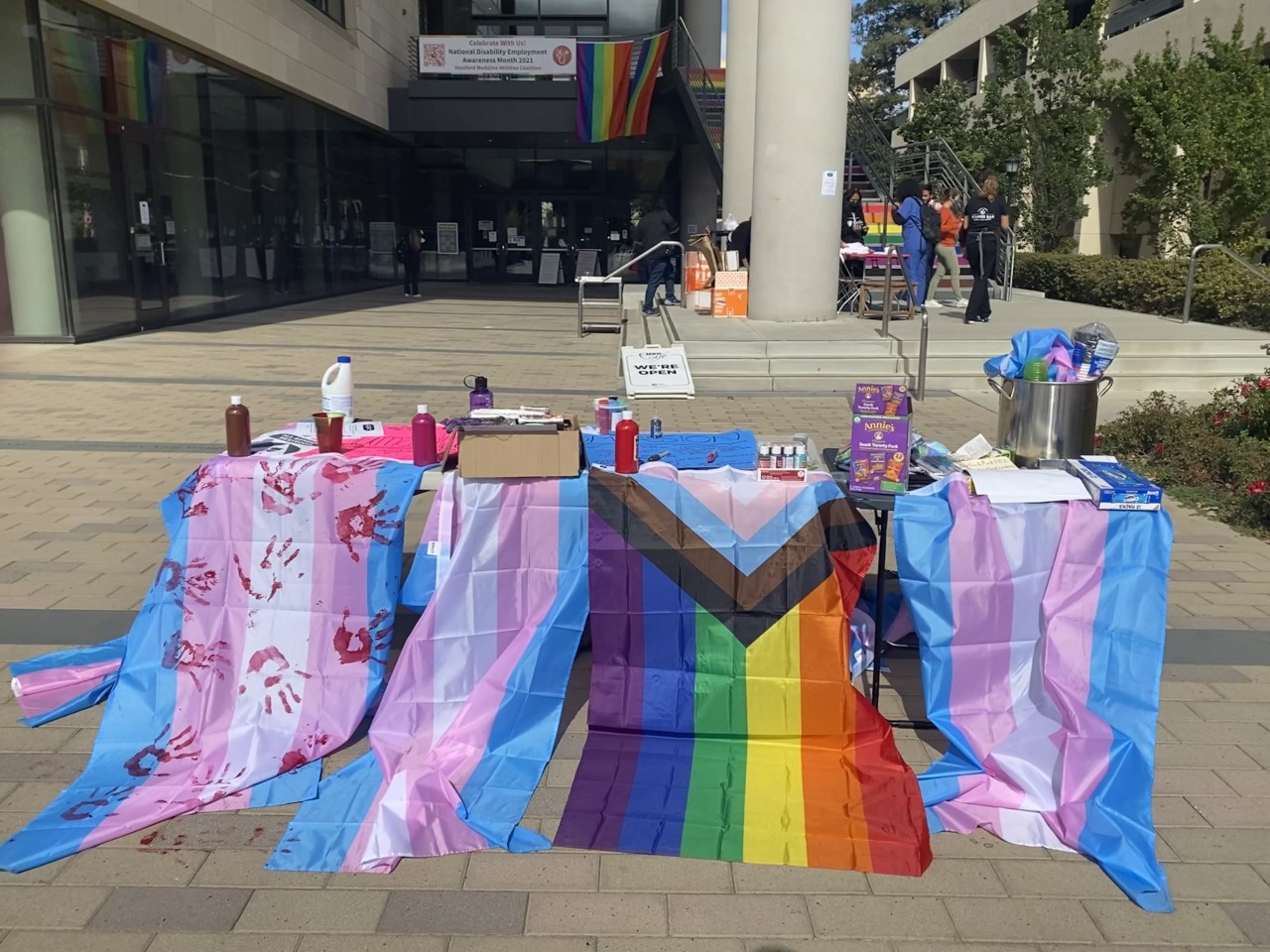Members of Stanford Queer Student Resources (QSR) boycotted the Stanford School of Medicine LGBTQ+ forum, disrupting the speeches of administrators and sporting flags with messages including “Stanford Medicine Kills Trans People” on Wednesday.
Among the specific action items raised by advocates at the event were calls for the School of Medicine to increase all-gender access to facilities, allow students to display only their preferred name on ID badges and increase mental health resources and gender affirmation healthcare, goals that they felt were excluded from the forum, which one activist called a “performative optics-fest.”
The LGBTQ+ forum was intended to promote visibility for LGBTQ+ individuals in healthcare and research. The 2021 forum, which included a virtual resource fair, speeches from various doctors and a community panel, focused on the importance of wellness and promoting belonging among individuals with diverse identities.
However, in practice, advocates from the School of Medicine wrote that the forum was “a photo opportunity for executives that doesn’t address any of the existing issues that have been raised by the community, and commends Stanford Healthcare for the limited, minor changes it implements throughout the year.”
Despite criticism, School of Medicine spokesperson Julie Greicius emphasized the School’s appreciation for the forum and for those who participated in it.
“Today’s forum was a strong demonstration of the authenticity and impact of this event: we heard the powerful voices of LGBTQ+ and SGM individuals in our community who shared their struggles, experiences, and deeply felt desire for greater and more rapid progress at Stanford Medicine and beyond,” she wrote.
The push from LGBTQ+ advocates comes during a year of distress for the Stanford LGBTQ+ community. Rose Wong, a transgender medical student at Stanford, died by suicide in February. An advocate at the event who asked to remain anonymous for fear of retaliation from the School of Medicine said Wong’s death was “an absolutely devastating loss” for the Stanford queer and transgender community. It has prompted renewed calls for the School of Medicine to take tangible steps to improve the lives of transgender students at Stanford.
According to Greicius, the School is “continually seeking ways to support our LGBTQ+ and Sexual and Gender Minorities Committee (SGM) community members, including the possibility of further increasing the number of all-gender restrooms.”
As part of the forum, the Stanford School of Medicine organized a giveaway table at the Li Ka Shing Center, where they distributed shirts decorated with the words “Humanity” and “Compassion.” The protestors organized in front of the giveaway, handing out flyers critiquing the School of Medicine’s policies and posting signs with the same words as the shirts. Students and staff passing by the table wrote messages on the posters including, “[Stanford School of Medicine], treat trans people like people” and “Compassion is action, not just words,” as a sign of solidarity.
“I think it’s important for people to have a space to express themselves, and certainly being handed swag is not a way to express yourself,” said another student who asked to remain anonymous for fear of retaliation from the School of Medicine. “This is a real opportunity to do that.”
At around 4:45 p.m., during the virtual element of the forum, advocates interfered with the School of Medicine administrators’ speeches by making noise outside of their offices.
Though some students feel comfortable showing their public support for transgender advocacy, that feeling of confidence and efficacy can be hard to come by for queer and transgender students at the School of Medicine, according to one advocate.
“There are some students who were worried about coming and being at the table today because they’re worried about getting letters of recommendation for the residencies,” the student said. “That shouldn’t be something they have to think about. But everybody has to come to peace with how visible and how loud they want to be about the change that they need.”
This article has been corrected to more accurately reflect the School of Medicine’s appreciation for the forum and its participants. The Daily regrets this error.
